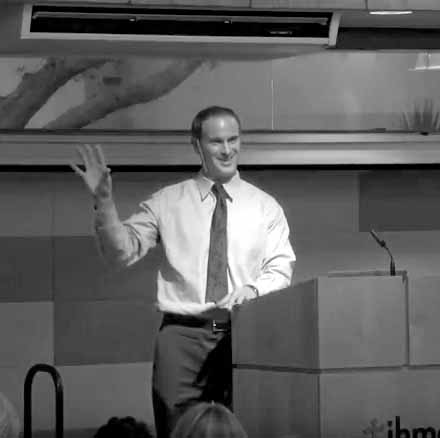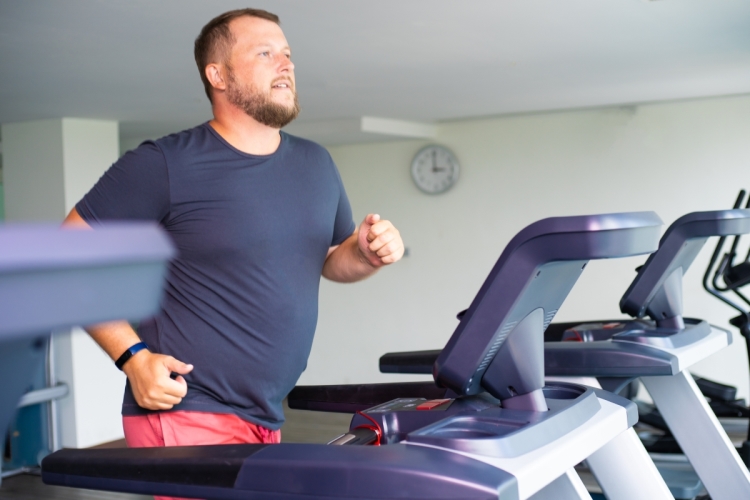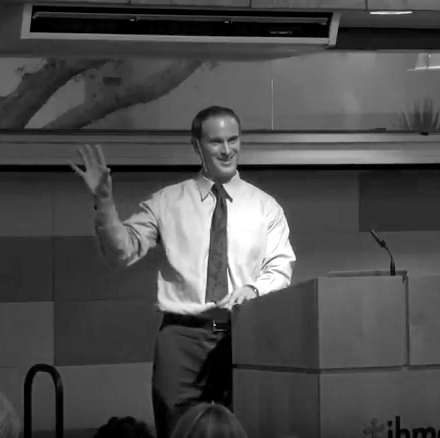5 Keys to Sustainable Weight Loss
Written by Stephen Anton PhD on July 13th, 2020
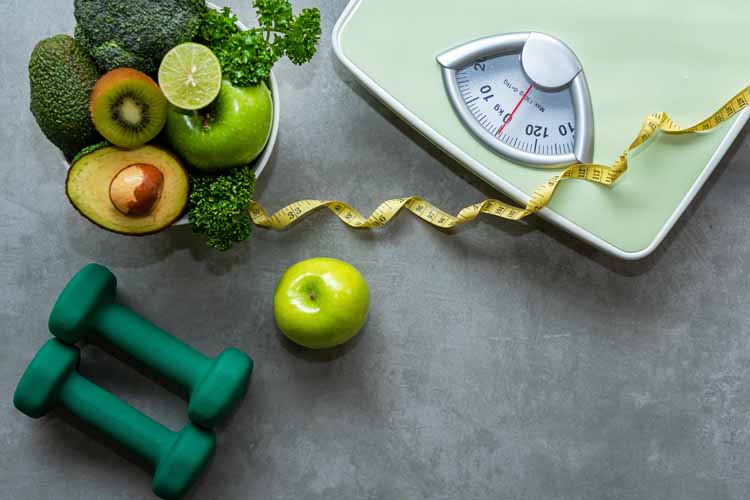
“Have you ever fallen into the dreaded diet trap?”
Almost everyone has at one time or another.
The one where you successfully lost some weight after following a highly restrictive diet for a long time.
Only to regain the weight that you fought so hard to remove.
That all ends today!
When you apply the five keys to sustainable weight loss in your daily life, it replaces that evil four-letter word called DIET, with a lifestyle that is sustainable and allows you to enjoy just about any food and still attain your weight loss and fat loss goals.
“Sound good?”
Great, let us dig in!
What Makes So Many Diets Fail?
For most of us, including myself, following a highly restrictive diet in our current environment is simply unrealistic.
It is not due to a failure of willpower or any character flaw.
We have plenty to stress about already, why add a super-restrictive diet to the mix.
A restrictive diet is a recipe for disaster because while we may lose some weight at the beginning, it is usually short-lived.
After all, the restrictions make us feel deprived and unsatisfied.
Not to mention, the body defends against weight loss through several different biological mechanisms.
These mechanisms make sustained weight loss from “diets” tough to achieve.
“What happens then?”
The Result of Failed Diets
The weight we lost comes back, sometimes even more than what we lost.
For many of us, the type of weight that gets regained is more fat than muscle.
As we repeat this cycle of weight loss and weight gain over time, it can have detrimental effects on our body composition and set us up for even more weight gain in the future (1).
The reason it can set us up for weight gain is that each time we gain fat and lose muscle, our metabolic rate (the way your body burns calories) slows down (2).
This cycle puts most people in a precarious position because the moment we deviate from the restrictive diet or demanding exercise program, body fat will accumulate, or lean mass will be lost.
Both of which lead to unhealthy metabolic changes.
“So, what do we do?”
Focus on Sustainable Weight Loss
A more effective approach to long-term weight loss is to focus on sustainable dietary and exercise practices that enhance our metabolic rate.
Particularly when combined with healthy meals consumed at specific times during the day.
The goal is to shift our bodies from fat storage mode to fat-burning mode in a way that is safe and sustainable.
This shift happens when we do the opposite of what so many others are advising, and it does not involve excessive calorie restriction or feeling deprived.
Instead, we shift the timing of our meals so that they align with our bodies’ natural circadian rhythms and simultaneously enhance our bodies’ energy expenditure.
The 5 Keys to Sustainable Weight Loss
The five keys to sustainable weight loss help increase our bodies metabolic rate, promote long-term sustainable weight loss, and give us the freedom to live fulfilling lives without the stress and feelings of being deprived.
1) Consume high-quality protein at each meal
Some favorites in this category are chicken breast, salmon, and grass-fed beef
2) Increase all types of physical activity
Take morning or evening walks
Park further away from our destination
Taking movement breaks if we are engaged in sedentary pursuits (watching TV, working at a computer, or reading)
3) Engage in resistance training exercise sessions
Particularly ones that work large muscle groups across several joints at the same time
Examples of this are push-ups, lunges, and rowing motions (to name a few)
4) Avoid (or reduce) night eating
Consume nutrient-rich meals during the day time
If we maintain our eating within a certain period of the day and stop eating a few hours before bed, it gives our bodies time to digest more of the food
Which can be used for necessary repair work while we sleep
5) Spend some time (15-30 minutes) in a dry sauna if available
It might seem odd to those who haven’t used saunas, but they can help accelerate fat loss
We do cardio partly to sweat and elevate our heart rates; the same thing happens in a dry sauna
The sauna is not a total replacement for cardiovascular exercise; it’s more of a supplement with extra health benefits—but that’s for another article
Sustainable Weight Loss Takeaways
All of the strategies we mentioned on their own can be great additions to our daily routines.
But when we combine them, they can and will increase the calories our bodies burn during the day and lead to more sustainable weight loss and an even healthier body.
After you apply these strategies, you will see that there is no reason to abuse ourselves with super-restrictive diets to achieve sustainable weight loss.
5 Keys to Sustainable Weight Loss
Written by Stephen Anton PhD on July 13th, 2020
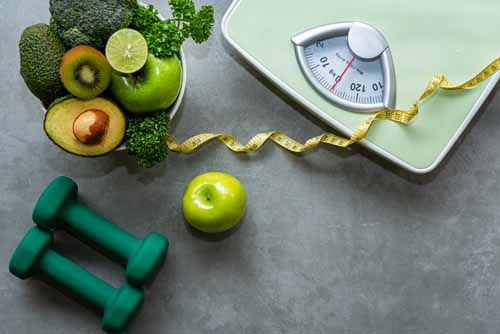
“Have you ever fallen into the dreaded diet trap?”
Almost everyone has at one time or another.
The one where you successfully lost some weight after following a highly restrictive diet for a long time.
Only to regain the weight that you fought so hard to remove.
That all ends today!
When you apply the five keys to sustainable weight loss in your daily life, it replaces that evil four-letter word called DIET, with a lifestyle that is sustainable and allows you to enjoy just about any food and still attain your weight loss and fat loss goals.
“Sound good?”
Great, let us dig in!
What Makes So Many Diets Fail?
For most of us, including myself, following a highly restrictive diet in our current environment is simply unrealistic.
It is not due to a failure of willpower or any character flaw.
We have plenty to stress about already, why add a super-restrictive diet to the mix.
A restrictive diet is a recipe for disaster because while we may lose some weight at the beginning, it is usually short-lived.
After all, the restrictions make us feel deprived and unsatisfied.
Not to mention, the body defends against weight loss through several different biological mechanisms.
These mechanisms make sustained weight loss from “diets” tough to achieve.
“What happens then?”
The Result of Failed Diets
The weight we lost comes back, sometimes even more than what we lost.
For many of us, the type of weight that gets regained is more fat than muscle.
As we repeat this cycle of weight loss and weight gain over time, it can have detrimental effects on our body composition and set us up for even more weight gain in the future (1).
The reason it can set us up for weight gain is that each time we gain fat and lose muscle, our metabolic rate (the way your body burns calories) slows down (2).
This cycle puts most people in a precarious position because the moment we deviate from the restrictive diet or demanding exercise program, body fat will accumulate, or lean mass will be lost.
Both of which lead to unhealthy metabolic changes.
“So, what do we do?”
Focus on Sustainable Weight Loss
A more effective approach to long-term weight loss is to focus on sustainable dietary and exercise practices that enhance our metabolic rate.
Particularly when combined with healthy meals consumed at specific times during the day.
The goal is to shift our bodies from fat storage mode to fat-burning mode in a way that is safe and sustainable.
This shift happens when we do the opposite of what so many others are advising, and it does not involve excessive calorie restriction or feeling deprived.
Instead, we shift the timing of our meals so that they align with our bodies’ natural circadian rhythms and simultaneously enhance our bodies’ energy expenditure.
The 5 Keys to Sustainable Weight Loss
The five keys to sustainable weight loss help increase our bodies metabolic rate, promote long-term sustainable weight loss, and give us the freedom to live fulfilling lives without the stress and feelings of being deprived.
1) Consume high-quality protein at each meal
Some favorites in this category are chicken breast, salmon, and grass-fed beef
2) Increase all types of physical activity
Take morning or evening walks
Park further away from our destination
Taking movement breaks if we are engaged in sedentary pursuits (watching TV, working at a computer, or reading)
3) Engage in resistance training exercise sessions
Particularly ones that work large muscle groups across several joints at the same time
Examples of this are push-ups, lunges, and rowing motions (to name a few)
4) Avoid (or reduce) night eating
Consume nutrient-rich meals during the day time
If we maintain our eating within a certain period of the day and stop eating a few hours before bed, it gives our bodies time to digest more of the food
Which can be used for necessary repair work while we sleep
5) Spend some time (15-30 minutes) in a dry sauna if available
It might seem odd to those who haven’t used saunas, but they can help accelerate fat loss
We do cardio partly to sweat and elevate our heart rates; the same thing happens in a dry sauna
The sauna is not a total replacement for cardiovascular exercise; it’s more of a supplement with extra health benefits—but that’s for another article
Sustainable Weight Loss Takeaways
All of the strategies we mentioned on their own can be great additions to our daily routines.
But when we combine them, they can and will increase the calories our bodies burn during the day and lead to more sustainable weight loss and an even healthier body.
After you apply these strategies, you will see that there is no reason to abuse ourselves with super-restrictive diets to achieve sustainable weight loss.

Get the Beginner’s Guide to Intermittent Fasting
Take advantage of this FREE PDF and learn the basics of intermittent fasting.

Get the Beginner’s Guide to Intermittent Fasting
Take advantage of this 100% free PDF and learn the basics of intermittent fasting.

Get the Beginner’s Guide to Intermittent Fasting
Take advantage of this FREE PDF and learn the basics of intermittent fasting.

